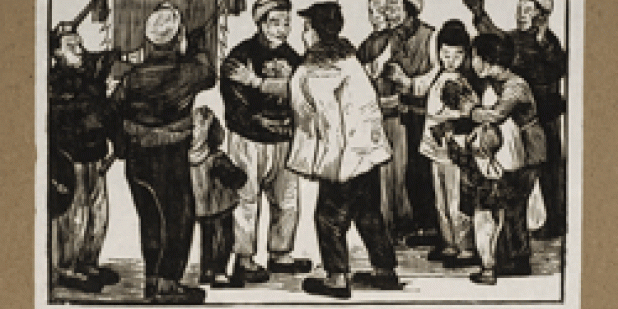Happy Lunar New Year from the USC US-China Institute!
China's Revolutionary Anniversaries: Remembering 1919, 1949, 1989
A symposium commemorating the 1919 May 4th Movement, the 1949 founding of the People's Republic of China, and the 1989 massacre in Tiananmen Square.

The year 2009 is an anniversary year of three of the most important events in modern Chinese history—the 90th anniversary of the May 4th Movement, the 60th anniversary of the founding of the People’s Republic of China, and the 20th anniversary of the massacre in Tiananmen Square. In commemoration of these events, the East Asian Studies Center and its partner center at the University of Illinois at Urbana-Champaign, the Center for East Asian and Pacific Studies, will hold a symposium titled “China’s Revolutionary Anniversaries: Remembering 1919, 1949, 1989” on Friday, February 20. During the day the symposium will take place in the Oak Room of the Indiana Memorial Union and will include a keynote address by Perry Link (East Asian Studies Program, Princeton University), followed by panel discussions.
In the evening Ellen Johnston Laing (Center for Chinese Studies, University of Michigan) will speak on the topic of “Woodcuts from Yan’an, China, 1944” in Radio and TV 251. This lecture is part of IU’s 2009 Arts Week program, “Arts and Politics,” and is presented by Horizons of Knowledge, Thomas T. Solley Endowment for the Pamela Buell Curator of Asian Art, EASC, Department of East Asian Languages and Cultures, Department of History, Friends of Art, the Robert and Avis Burke lecture series, and Department of the History of Art.
Directly following the lecture the Department of the History of Art will hold a reception in the Thomas T. Solley Atrium at the IU Art Museum, at which time visitors will be able to view a special installation of Chinese socialist realist woodblock prints that the IU Art Museum has on loan in memory of John and Alice Colling. Army Captain John Colling served with the Dixie Mission, which was charged by Franklin D. Roosevelt to establish contact with the Communist forces and evaluate their effectiveness in combating the Japanese. Captain Colling traveled with the Communist Eighth Route Army and the People’s Militia where he served as the official photographer and demolitions expert. He met, conferred, and lived with Mao Zedong, Zhou Enlai, and other legendary figures of the Communist revolution. Zhou Enlai presented Captain Colling with the prints in recognition of his service to the Chinese people.
Featured Articles
We note the passing of many prominent individuals who played some role in U.S.-China affairs, whether in politics, economics or in helping people in one place understand the other.
Events
Ying Zhu looks at new developments for Chinese and global streaming services.
David Zweig examines China's talent recruitment efforts, particularly towards those scientists and engineers who left China for further study. U.S. universities, labs and companies have long brought in talent from China. Are such people still welcome?






